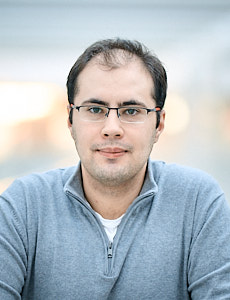
From POLIMA to Madrid: The impact of collaborations across frontiers
PhD student Pedro Ninhos has spent 6 months abroad: An exciting research and life experience in Madrid.
At a PhD defense in POLIMA, I met a very likable Spanish professor from the Universidad Autónoma de Madrid, who made me aware of the interesting and broad ongoing research at the Spanish institution, specifically in the University’s Condensed Matter Physics group, IfiMAC. I realized that there were many overlapping research interests between Autónoma de Madrid and POLIMA. In particular, there is a running project called AtomElix, where they study light-matter interactions in 2D and nanostructured condensed matter systems using numerical methods. At the group of Professor Juan José Palacios, who I am working with now, they focus on the optical excitonic response of 2D semiconductors and insulators, which closely aligns with my PhD project. This seemed like the perfect opportunity to deepen my understanding of an interesting and relevant topic for me and to experience the vibrant city of Madrid.
During my stay, I made new friends with researchers from the AtomElix project and met other PhD students conducting research in condensed matter physics on very different but equally enticing projects. This has been a highly positive experience, prompting me to reflect on my role as an early-stage researcher and the many opportunities waiting for me after I complete my PhD studies. I am also highly motivated to continue working on the project I started, to further extend and deepen my expertise, to collaborate with peers for whom my work is relevant, and to foster new collaborations whether in Madrid or elsewhere.
I also had the chance to practice my "Portuñol," which we Portuguese use say to refer to a mix of Portuguese and broken Spanish (“Español”), in our best attempt at speaking Spanish. I also had the chance to try the typical Spanish “turrón” and revive the taste of “calamares” in my memory – something I used to enjoy in Spain during summer vacations with my family as a child.
The research of Pedro Antonio Correia Ninhos is supported by the following:
- Independent Research Fund Denmark (2032-00045B)
- Danish National Research Foundation (DNRF165)
- Otto Mønsteds Fond
